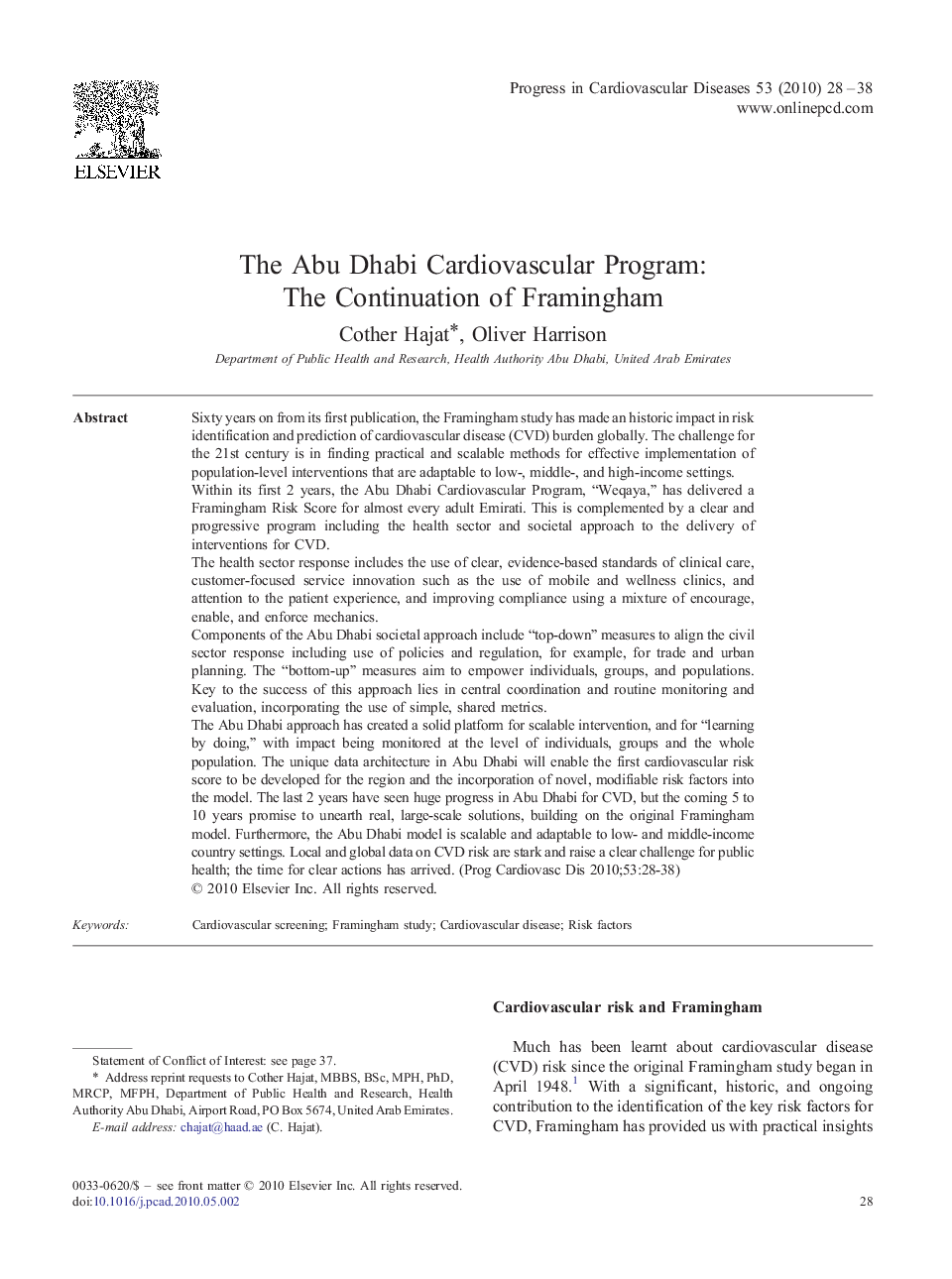| Article ID | Journal | Published Year | Pages | File Type |
|---|---|---|---|---|
| 3006547 | Progress in Cardiovascular Diseases | 2010 | 11 Pages |
Sixty years on from its first publication, the Framingham study has made an historic impact in risk identification and prediction of cardiovascular disease (CVD) burden globally. The challenge for the 21st century is in finding practical and scalable methods for effective implementation of population-level interventions that are adaptable to low-, middle-, and high-income settings.Within its first 2 years, the Abu Dhabi Cardiovascular Program, “Weqaya,” has delivered a Framingham Risk Score for almost every adult Emirati. This is complemented by a clear and progressive program including the health sector and societal approach to the delivery of interventions for CVD.The health sector response includes the use of clear, evidence-based standards of clinical care, customer-focused service innovation such as the use of mobile and wellness clinics, and attention to the patient experience, and improving compliance using a mixture of encourage, enable, and enforce mechanics.Components of the Abu Dhabi societal approach include “top-down” measures to align the civil sector response including use of policies and regulation, for example, for trade and urban planning. The “bottom-up” measures aim to empower individuals, groups, and populations. Key to the success of this approach lies in central coordination and routine monitoring and evaluation, incorporating the use of simple, shared metrics.The Abu Dhabi approach has created a solid platform for scalable intervention, and for “learning by doing,” with impact being monitored at the level of individuals, groups and the whole population. The unique data architecture in Abu Dhabi will enable the first cardiovascular risk score to be developed for the region and the incorporation of novel, modifiable risk factors into the model. The last 2 years have seen huge progress in Abu Dhabi for CVD, but the coming 5 to 10 years promise to unearth real, large-scale solutions, building on the original Framingham model. Furthermore, the Abu Dhabi model is scalable and adaptable to low- and middle-income country settings. Local and global data on CVD risk are stark and raise a clear challenge for public health; the time for clear actions has arrived.
